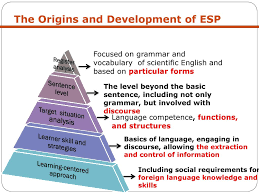ESP
Topic outline
-
Semester: 05+06 (L3)
Teaching Unit: Fundamental
Module: English for specific purposes
Teachers: Prof. Benyelles Radia, Prof. Lamri Chamseddine, Prof. Heddam Faiza
Credits: 02
Coefficient: 01
-
Contact Details

Pr. Chamssedine LAMRI
Pr. Radia BENYELLES
Pr. Faiza HADDAM BOUABDALLAH
Course Objectives
Ø Introducing the students to the main concepts of teaching English for specific purposes.
Ø To demonstrate the main differences between general English and ESP
Ø Conducting a Needs Identification and Analysis process
Prerequisite
Ø Basic knowledge of language, linguistics and didactics.
-
Subject Contents
The origins of ESP
Development of ESP
Difference between ESP and EGP
Types of ESP
ESP definitions
Needs analysis in ESP
Types of needs
Needs analysis procedure
Approaches to course design in ESP
Syllabus design
Material production
NB. Practice takes on presenting projects related to NIA in several Academic and professional contexts, course design according defined needs.
Assessment
100% written exams in S1
100% continuous Assessment S2
-
Sources and references
· Basturkmen, H. (2006). Ideas and Options in English for Specific Purposes.London and New jersey: ESL and Applied Linguistic Professional Series: Eli Hinkel, Edition.
· Dudley-Evans,T.and St Johns,M.J (1998) Developments in ESP a Multi-Disciplinary Approach Cambridge: Cambridge University Press.
· Hutchinson, T. and Waters, A. (1987) English for Specific Purposes Cambridge: CUP
· Richards, J.C (2001) Approaches and Methods in Language Teaching 2nd Edition Cambridge: Cambridge University Press.
-
-
Time: 1H30
Aim: To understand how English Language evolves through history Proposed by Hutchinson and Water (1987)to meet specialised needs,
-
1.1 Introduction
1.2 The demands of a brave new world
1.3 A revolution in linguistics
1.4 Focus on the learner
-
-

Time: 1H30
Aim: To discover the different phases that esp approach went through from 1960
-
2.1 The concept of special language: register analysis
2.2 Beyond the sentence: rhetorical or discourse analysis
2.3 Target situation analysis
2.4 Skill and strategies
2.5 A learning centered approach
-
-
Time: 3HOURS
AIM: To discover the different definitions of ESP ans an approach from different scholars
-
Students are supposed to prepare a small presentation of no more than 5mins at the starting of the coming session to explore several overview about ESP
-
